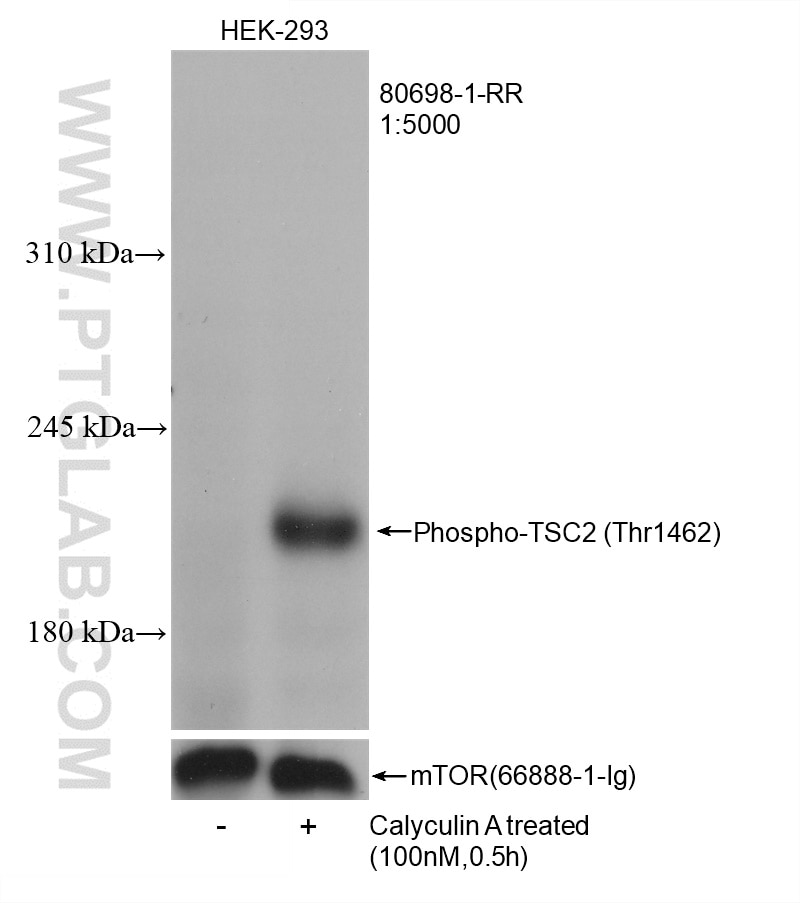Validation Data Gallery
Tested Applications
| Positive WB detected in | Calyculin A treated HEK-293 cells |
Recommended dilution
| Application | Dilution |
|---|---|
| Western Blot (WB) | WB : 1:2000-1:10000 |
| It is recommended that this reagent should be titrated in each testing system to obtain optimal results. | |
| Sample-dependent, Check data in validation data gallery. | |
Product Information
80698-1-RR targets Phospho-TSC2 (Thr1462) in WB, ELISA applications and shows reactivity with Human samples.
| Tested Reactivity | Human |
| Host / Isotype | Rabbit / IgG |
| Class | Recombinant |
| Type | Antibody |
| Immunogen | Peptide 相同性解析による交差性が予測される生物種 |
| Full Name | tuberous sclerosis 2 |
| Calculated molecular weight | 1807 aa, 201 kDa |
| Observed molecular weight | 200 kDa |
| GenBank accession number | BC150300 |
| Gene Symbol | TSC2 |
| Gene ID (NCBI) | 7249 |
| RRID | AB_3085354 |
| Conjugate | Unconjugated |
| Form | Liquid |
| Purification Method | Protein A purification |
| UNIPROT ID | P49815 |
| Storage Buffer | PBS with 0.02% sodium azide and 50% glycerol , pH 7.3 |
| Storage Conditions | Store at -20°C. Stable for one year after shipment. Aliquoting is unnecessary for -20oC storage. |
Background Information
TSC2, also named Tuberin, plays an essential role in the cellular energy response pathway. TSC2 forms a physical and functional complex with TSC1 that can inhibit the nutrient-mediated or growth factor-stimulated phosphorylation of S6K1 and EIF4EBP1 by negatively regulating mTORC1 signaling. It has been reported that TSC2 can be phosphorylated at Thr1462 by Akt/PKB involved in stimulating cell growth and is activated by insulin. (PMID: 14651849, 12172553)
Protocols
| Product Specific Protocols | |
|---|---|
| WB protocol for Phospho-TSC2 (Thr1462) antibody 80698-1-RR | Download protocol |
| Standard Protocols | |
|---|---|
| Click here to view our Standard Protocols |
